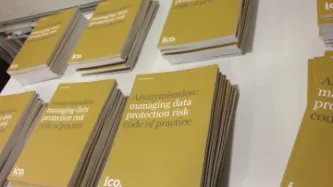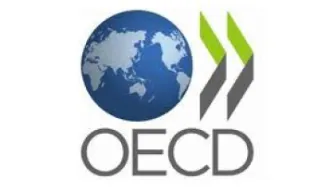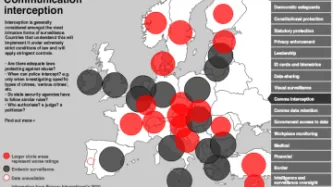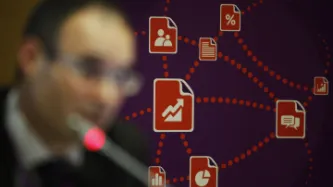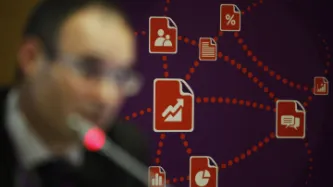Search
Content type: News & Analysis
Privacy International’s campaign for effective export controls of surveillance technology is still ongoing, but for one company, action can already be taken by HM Revenue & Customs to hold stop their unethical practices. Here is the story so far...
Privacy International has been investigating the trade in surveillance technology for almost two years as part of our Big Brother Incorporated project. Our research showed the capabilities of surveillance technology has grown hugely in the…
Content type: News & Analysis
It was only last year that women in Saudi Arabia finally gained the right to vote. However, it seems a sad case of ‘one step forward, two steps back’, as this year it was discovered that all Saudi women are being electronically tracked by their male ‘guardians’, who are automatically sent text messages when their female ‘dependants’ attempt to cross the border. For women seeking to escape abusive relationships, or simply the severe generalised oppression of women that operates…
Content type: News & Analysis
A full analysis of the UK Information Commissioner's "Anonymisation code of practice: managing data protection risk" will take time and working knowledge of how the code is used in practice.
At the launch, the ICO signalled that while they believed the code was now up to scratch, they were open to additions and clarifications given that it is the first document of its kind in the world. We applaud them for this; the code is likely to be copied internationally, so it is particularly…
Content type: News & Analysis
Next week, the European Parliament will make an important decision affecting one of the world’s most vulnerable and stigmatised groups of people: asylum seekers. This decision is part of a larger debate about privacy and function creep, about authorities breaking promises that were made when personal information was collected and using it for new purposes.
EURODAC, a transnational database containing the personal and biometric information of all asylum seekers and illegal immigrants found…
Content type: News & Analysis
Twelve years after the Regulation of Investigatory Powers Act (RIPA) was passed by the UK Parliament, permitting the interception of communications without a judicial warrant and allowing the police to self-authorise access to communications metadata, some parts of this dangerous law are finally being properly scrutinised. This isn't an intentional review, but rather a by-product of a joint parliamentary committee's interrogation of the draft Communications Data Bill, the Home Office's…
Content type: News & Analysis
Today we launch the public consultation process for the International Principles on Communications Surveillance and Human Rights. From now until January 3rd, we are inviting comments and suggestions on the draft principles.
The rationale behind these principles is to provide civil society, industry and government with a framework against which to evaluate whether current or proposed surveillance laws and practices are consistent with human rights. Now more than ever, we need greater…
Content type: News & Analysis
Last month, US District Judge William Griesbach ruled that police can lawfully install covert digital surveillance cameras on private property without a warrant. Officers of the Drug Enforcement Agency had entered a property belonging to Marco Magana, which was littered with ‘no trespassing’ signs and behind a locked gate, and installed hidden cameras without the consent or knowledge of either the occupant or a court of law. In what has been described by Salon as “yet another…
Content type: News & Analysis
There have been two rounds of meetings in 2012 of the OECD Committee for Information, Computer and Communications Policy (ICCP) and some of its working parties – in May and October 2012, with further meeting of two working parties in December. A ‘foresight forum’ on the ‘big data’ theme was held on 22 October. Civil society interest in the ICCP work programme is formalised through the Civil Society Information Society Advisory Council (CSISAC).
The Working Party on Information Security…
Content type: News & Analysis
One of the first things that strikes you about the chaotic East African metropolises of Kenya, Uganda and Zimbabwe is the blanket of adverts for mobile phone companies that covers them, from the walls of the immigration hall at Harare airport, to the rickety shacks that line the dusty streets of Kampala. Where official signage is unavailable, DIY versions are painted onto the roofs and walls of houses and small businesses. Stores selling mobile phones are rarely more than a few short steps away…
Content type: News & Analysis
Privacy International is proud to announce our new project, Eyes Wide Open, which aims to pry open the Five Eyes arrangement and bring it under the rule of law. Read our Special Report "Eyes Wide Open" and learn more about the project below.
For almost 70 years, a secret post-war alliance of five English-speaking countries has been building a global surveillance infrastructure to “master the internet” and spy on the worlds communications. This arrangement binds together the US, UK, Canada,…
Content type: News & Analysis
Communications surveillance is one of the most significant threats to personal privacy posed by the state. This is why many statements of fundamental rights across the world give special regard to the privacy of communications. For example, the Universal Declaration of Human Rights states in Article 12:
No one should be subjected to arbitrary interference with his privacy, family, home or correspondence, nor to attacks on his honour or reputation. Everyone has the right to the protection of…
Content type: News & Analysis
Privacy International asked lawyers, activists, researchers and hackers at Defcon 2012 about some of the debates that thrive at the intersection between law, technology and privacy. We also wanted to know why privacy matters to them, and what they thought the future of privacy looked like. This video is a result of those conversations.
Featuring Cory Doctorow, Kade Crockford, Jameel Jaffer, Dan Kaminsky, Chris Soghoian, Marcia Hoffman, Moxie Marlinspike, Phil Zimmerman, Hanni Fakhoury…
Content type: News & Analysis
Large institutions tend to focus internally, with minimal regard to the external environment. Open Databecoming institutionalised is not different, and as a leading edge country in opening data, the UK is making the predictable mistakes first:
The UK’s Department for Education (DfE) is currently considering opening data from the National Pupil Database. At a preparation event for this initiative, at which some data was released for use in an ‘appathon’, one participant believed he…
Content type: News & Analysis
Let's be clear: the Open Data movement is not about the pursuit of complete and unconditional openness. We know that it would be unwise to publish details of police patrol patterns, or the combination to the safe containing the crown jewels. We believe that fundamental reference data like ordnance survey maps, transport timetables, and company information should be freely available to all - information about objects, rather than information about people. Internationally, slightly different…
Content type: News & Analysis
We welcome the Informational Commissioner's intention to produce guidance for data controllers around the production of Open Data. Rigorous guidance is sorely needed in this area, with even large Government departments getting it dangerously wrong. Some data can be released safely in some circumstances; depending on the type and there has been sufficient consideration of the nuance of the situation. Adequate anonymisation is exceptionally difficult, and reidentification is possibly using…
Content type: News & Analysis
On the surface, it’s all about protecting Russian kids from internet pedophiles. In reality, the Kremlin’s new “Single Register” of banned websites, which goes into effect today, will wind up blocking all kinds of online political speech. And, thanks to the spread of new internet-monitoring technologies, the Register could well become a tool for spying on millions of Russians.
Signed into law by Vladimir Putin on July 28, the internet-filtering measure contains a single, innocuous-sounding…
Content type: News & Analysis
Modern information and communications technologies are now seamlessly integrated into our daily lives. Internet-based communications are no longer a luxury, but rather a necessity, for people across the globe. This is particularly the case in developing countries where, as well as helping individuals communicate, learn and connect, technologies play a vital role in advancing fundamental human rights and fuelling social progress.
It is therefore hardly surprising that ICTs are increasingly…
Content type: News & Analysis
Today, travelling within many cities around the world comes at a cost: privacy.
Electronic ticketing systems are proliferating, but it’s not clear how much information they collect or what they do with it. Privacy International has written to 48 transport authorities and companies operating transport services across the world requesting this data.
The kinds of personal information held about users of London’s Oyster card (which is used to travel by tube, train and bus) include full…
Content type: News & Analysis
Tuesday’s letter to Google CEO Larry Page, personally signed by 29 European data protection authorities, ordered the corporation (inter alia) to give users greater control over their personal information. The notions of trust and control are emphasised throughout the letter, and Google is urged to "…develop new tools to give users more control over their personal data" and "collect explicit consent for the combination of data for certain purposes". It is good news that the…
Content type: News & Analysis
Greek newspaper To Vima reported late last night that Golden Dawn MP Ilias Panagiotaros has requested the exact data of "foreign infants and young children, by country of origin, who are in nursery schools" in Greece from the Greek Ministry of Interior (the equivalent of the British Home Office or US State Department). To Vima’s headline read 'Taking a leaf out of Herod’s book'.
The request echoes earlier demands made by the party for information about immigrants’ use…
Content type: News & Analysis
Privacy International, Agentura.Ru, the Russian secret services watchdog, and Citizen Lab have joined forces to launch a new project entitled 'Russia’s Surveillance State'. The aims of the project are to undertake research and investigation into surveillance practices in Russia, including the trade in and use of surveillance technologies, and to publicise research and investigative findings to improve national and international awareness of surveillance and secrecy practices…
Content type: News & Analysis
APEC privacy activity has passed another milestone with the acceptance in July 2012 of the USA as the first economy to formally join the cross border privacy rules (CBPR) system. The CBPR Joint Oversight Panel (JOP), with the Canadian chair of the Data Privacy Subgroup (DPS) standing in for the US member in accordance with the ‘no conflict of interest’ provisions, accepted the US government application, which nominated the Federal Trade Commission (FTC) as the privacy enforcement authority…
Content type: News & Analysis
Privacy International welcomes the Select Committee Inquiry. We approach the proposed EU Data Protection Framework from the perspective of individual citizens and consumers.
We consider that this Inquiry and other consultations must take into account not just considerations of burdens to business and administrations, but also the fundamental rights of individuals to privacy and data protection that the UK has to comply with as a signatory to EU treaties and conventions.
The…
Content type: News & Analysis
Anonymous proxy service HideMyAss.com - "a leading online privacy website" according to its own homepage - today admitted handing over user logs to law enforcement agencies.
We commend companies running privacy-protecting services. We need more like them. But we also need them to keep their word. Their website claims "Our free web proxy is a secure service that allows you to surf anonymously online in complete privacy" and their pro paid-for version promises that users can "…
Content type: News & Analysis
On 25th January 2012, the European Commission published a proposal that would comprehensively reform the European data protection legal regime. One aspect of its proposal, a new Regulation (the “Proposed Regulation”),1 would modernise and further harmonise the data protection regime created by the Data Protection Directive (95/46/EC). Another aspect of the Commission’s proposal, a new Directive2 (the “Proposed Directive”), would set out new rules on “the protection of individuals with…
Content type: News & Analysis
On 25th January 2012, the European Commission published a proposal that would comprehensively reform the European data protection legal regime. One aspect of the proposal, a new Regulation (the “Proposed Regulation”),1 would modernise and further harmonise the data protection regime created by the Data Protection Directive (95/46/EC). Another aspect of the Commission’s proposal, a new Directive (the “Proposed Directive”), would set out new rules on “the protection of individuals with…
Content type: News & Analysis
A year ago this week, the UK government published a report entitled 'Transparent Government, Not Transparent Citizens', authored by Dr Kieron O’Hara. It made fourteen recommendations, the most important of which seem not to have been implemented. Meanwhile, the government continues to release data on citizens, and is accelerating these disclosures with some ambitious new policies.
This inaction on privacy and open data is particularly worrying given the UK’s leading role in open data and the…
Content type: News & Analysis
As part of the government’s ambitious Open Data programme, the Cabinet Office announced last year that data from the National Pupil Database (NPD) will be made freely available and accessible to all. The NPD, previously only available to researchers on an academic licence, contains a record for every single state school pupil in the country, covering educational attainment from reception to sixth form, as well as characteristics such as attendance, ethnic background and free…
Content type: News & Analysis
The UK Minister for Education, Michael Gove, today stated in Parliament that he would be moving forward his plans to open up the National Pupil Database, and announced a government consultation on the initiative. The Minister promised that "all requests to access extracts of data would go through a robust approval process and successful organisations would be subject to strict terms and conditions covering their handling and use of the data, including having…
Content type: News & Analysis
Privacy Internationally has submitted two documents to the UK Parliament's Joint Committee reviewing the draft Communications Data Bill. The first submission is an implementation briefing based on our work for the Big Brother Incorporated project, establishing the capabilities and defects of existing surveillance technologies. The second submission focuses on the the majority of the Joint Committee's 21 questions about the social and ethical implications of increased communications…


